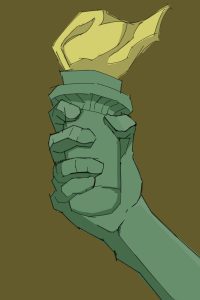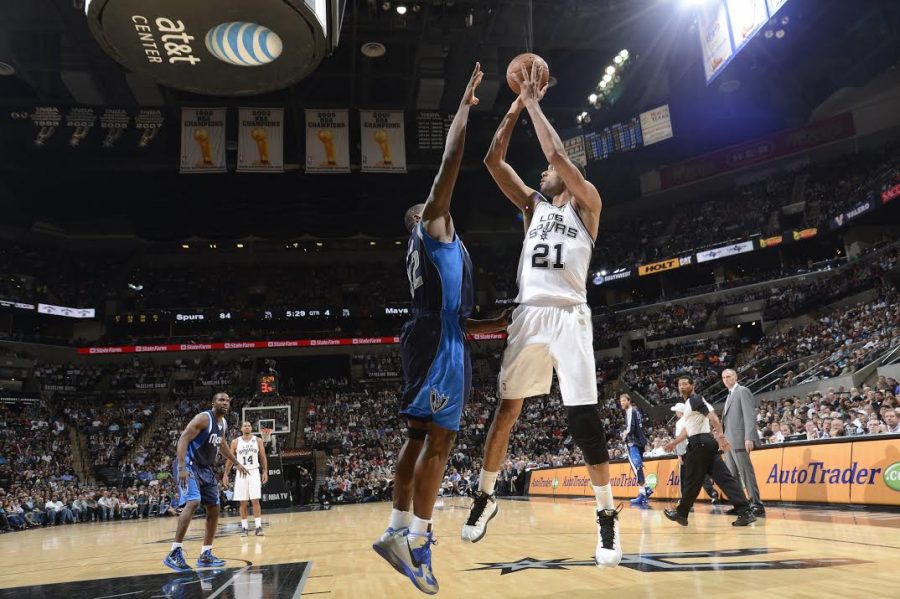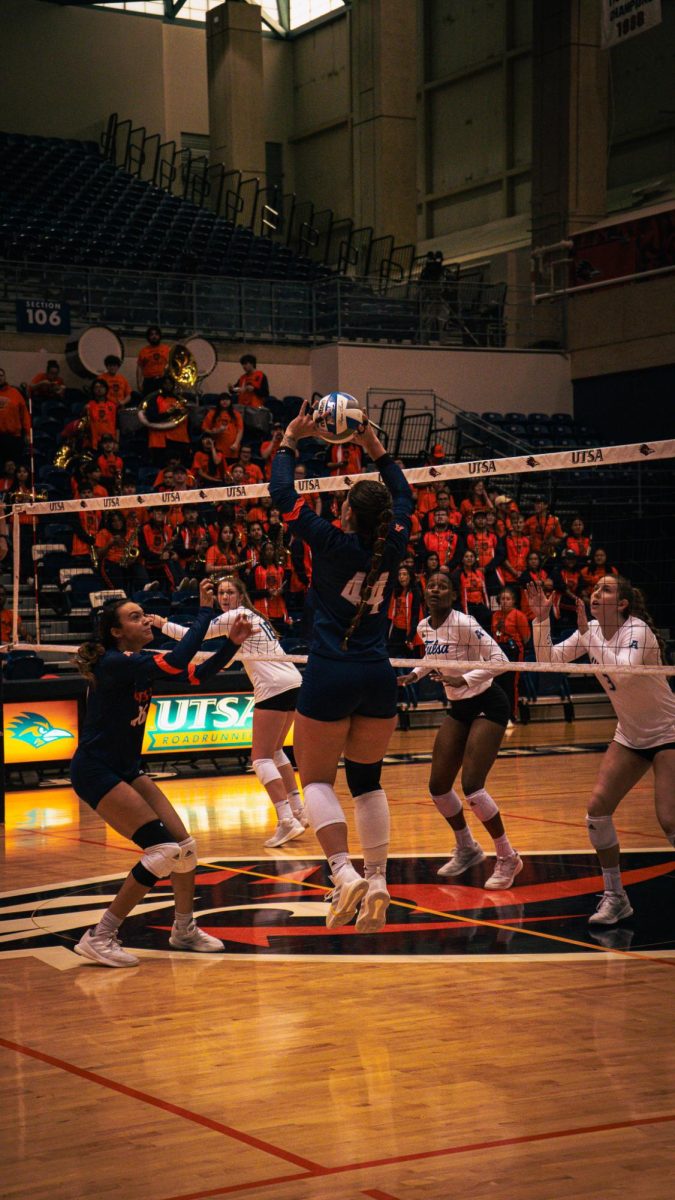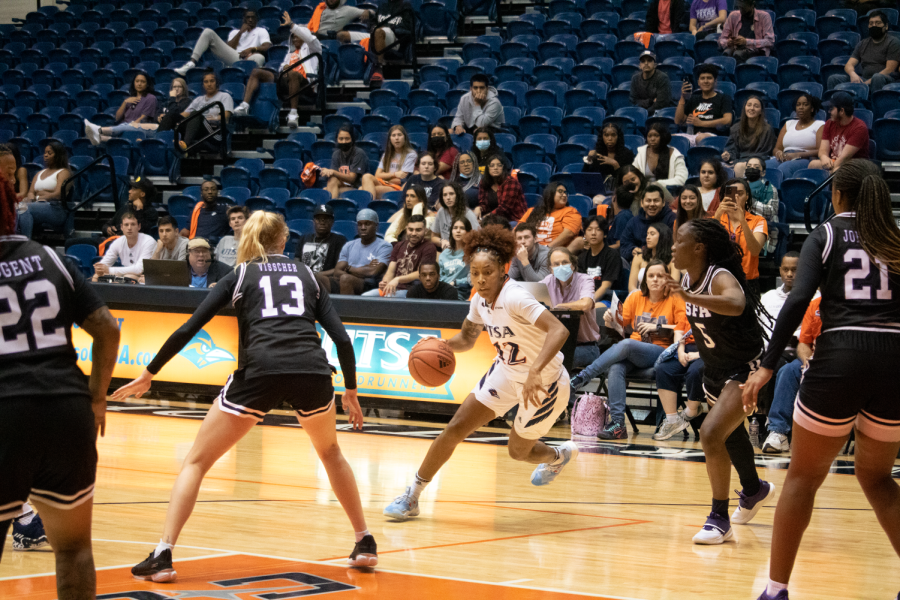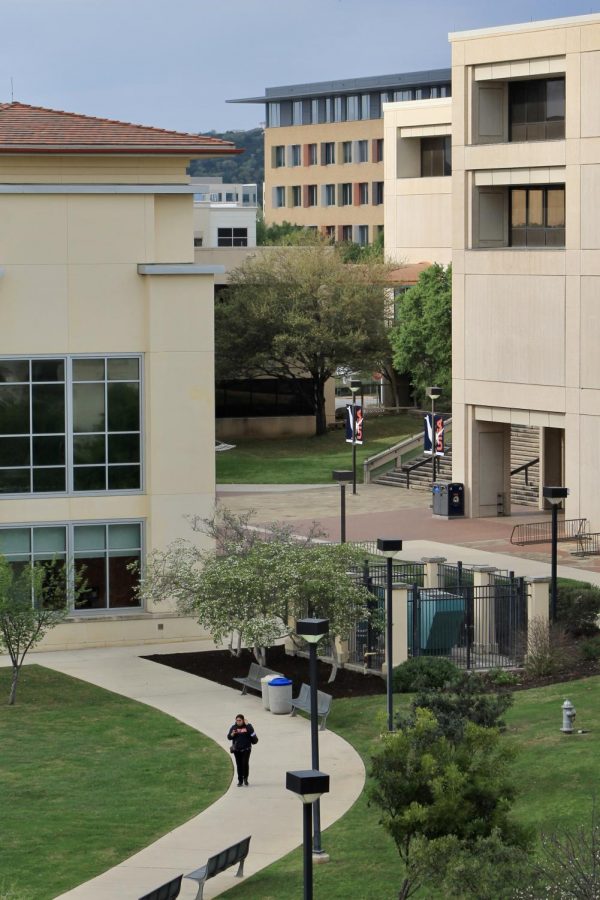For 19 years, he was the beloved cornerstone of the San Antonio Spurs franchise. He was the epitome of class and consistency, winning a championship in three different decades and leading the silver and black to the playoffs year after year.
Earlier this year on July 11, the 40-year old announced his retirement from the NBA marking an end to his illustrious career. This move sent Spurs fans everywhere into episodes of heartbreak.
It was the end of an era for the Spurs; although his retirement was somewhat expected, it still hit fans hard when one of the greatest players to ever grace the hardwood floor walked away from the game forever.
At age 40, he wasn’t the player he used to be, and he played significantly fewer minutes compared to when he was in his prime. However, he was still the backbone of the team, always doing whatever he could to help the Spurs win games. The Spurs are set to retire his jersey on Dec. 18 at AT&T Center during halftime of the Spurs, Pelicans game.
The number 21 will be deemed unwearable. This number forever belongs to “The Big Fundamental” and “Old man Riverwalk”, the one and only Tim Duncan.
So how did the awkwardly tall 14-year old from St. Croix, whom dreamt of being an Olympic swimmer, become the greatest power forward to ever play?
In his early teenage years, Tim Duncan was a standout swimmer and was aiming to make the U.S. 1992 Olympic team when Hurricane Hugo destroyed the island’s only Olympic sized pool. Duncan turned to basketball after he, being fearful of sharks, was forced to practice swimming in the ocean. Despite not picking up the game until he was 14, he was a quick learner; he quickly became a star on his high school basketball team before choosing to attend Wake Forest University. Once there, he continued to consistently prove to be a major force on the court and after his sophomore year, speculation began on his NBA future.
However, Duncan’s mother died of breast cancer one day before his 14th birthday. Duncan had promised his mother that he would earn a college degree. Because of this, Duncan refused to leave college early like so many players do and stayed all four years at Wake Forest University. He declared for the 1997 NBA draft after having received a bachelor’s degree in psychology, and on June 25 1997, the Spurs organization was changed forever. With the first overall pick in the draft, after a horrendous 20-62 season, the Spurs chose Tim Duncan. He wasted no time proving his talent and started all 82 games his rookie year alongside David Robinson. The duo became known as “The Twin Towers.” Duncan averaged 21 points per game with 2.5 blocks, and he won the rookie of the year award in a landslide.
It would be only the first of many awards in his Hall of Fame career. Just one year later, the Spurs would go on to defeat the Knicks in the 1999 NBA finals; Duncan was named Finals MVP in just his second season after averaging 23 points and 11 rebounds per game in the finals.
With Duncan solidifying himself as one of the more consistent power forwards in the game, he won back-to-back league MVP awards in the 2002 and 2003 seasons while also being named finals MVP again in the 2003 season. It was his second NBA championship and second finals MVP award.
The Spurs became a powerhouse in the NBA as they would go on to win two more championships in ’05 and ’07. In just 10 seasons, Duncan had won four championship rings, been named league MVP twice and was named to the All-star team nine times. Year after year, he quietly racked up more accolades.
As Tim Duncan transitioned into the later part of his career, he continued to dominate the boards; although he had lost a step or two, he was the same Tim Duncan he had always been. Every season, he was the center of the franchise. Players came and went, but Duncan always stayed.
His loyalty to the Spurs and San Antonio never wavered. After the Spurs won the championship in 2014 over the Miami Heat, many rumors were afloat about whether or not the 38-year-old Duncan was done. Duncan said nothing in regards to his retirement. In 2015, he signed a two-year contract to remain with the team and willingly took a huge pay-cut to make salary room for other players such as Danny Green to remain on the team. As the 15-time All Star’s career ended, he continued to achieve milestone after milestone–3,000 blocks, 26,000 points, 15,000 rebounds—the list goes on and on.
To gain some perspective,after Head Coach Gregg Popovich and the Spurs selected Duncan in the ’97 draft, the Spurs never had a losing record again, and went on to make the playoffs every year Duncan was on the team. In Duncan’s entire 19-year career, he never experienced the feeling of missing out on the playoffs. Duncan and Popovich also became the most winning coach/player duo in NBA history, winning 1,001 total games together over their 19 seasons together.
Sure, the stats and numbers are impressive, but the truth is Duncan was never in it for the awards, the money or the fame. At the end of the day, he just wanted to play basketball and win games. He was never flashy and was one of the most composed players to ever play as he rarely got angry or upset no matter what happened over the course of the game.
So, on Dec. 18 when they have his ceremony at AT&T Center, he’ll smile sheepishly and wave to the crowd that’s chanting his name while walking over the polished hardwood floor of the court. Tim Duncan was not just a basketball player; he was a selfless person and teammate, a loyal Spur, an icon of the sport of basketball and a hero to San Antonio.





